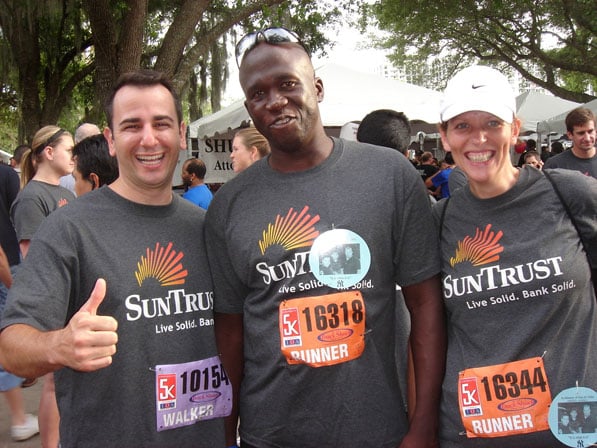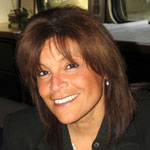Alexander Hernandez is an unapologetic idealist. The vice president and financial adviser of SunTrust Investment Services, Inc. (SunTrust’s private wealth-management group), Hernandez also cochairs the bank’s Central Florida diversity council. He knows all about the business case for diversity and how diverse backgrounds, cultures, and perspectives translate into unique products and an increase in revenue, but along with his optimism is an idealism that is both refreshing and rare. “Diversity isn’t just about business,” Hernandez says. “The world is getting smaller and we have to be able to work together, learn from each other, and embrace our differences. I want to pass on a better world than the one I inherited. That’s what my dad wanted me for me and that’s what I want for my children.” Here, Hernandez chats with HE about his accidental introduction to financial services and his belief that hard work will get noticed
 I never had an epiphany or a realization that I was supposed to be in financial services—it just sort of happened. My father came from Colombia on a study visa and he couldn’t have me hanging around the house all day while studying for his master’s, so at 10 years old I began working for a family friend that was a builder and property manager. It didn’t seem strange to me. In our house, everyone was expected to work. I mostly used my size to my advantage, running wires where no one else would fit. By the time I was in high school, I was the builder’s right-hand man; I was analyzing projects and performing other advanced tasks. That lead to studying finance and real-estate analysis at the University of Florida and, eventually, to a position at Prudential Financial Services.
I never had an epiphany or a realization that I was supposed to be in financial services—it just sort of happened. My father came from Colombia on a study visa and he couldn’t have me hanging around the house all day while studying for his master’s, so at 10 years old I began working for a family friend that was a builder and property manager. It didn’t seem strange to me. In our house, everyone was expected to work. I mostly used my size to my advantage, running wires where no one else would fit. By the time I was in high school, I was the builder’s right-hand man; I was analyzing projects and performing other advanced tasks. That lead to studying finance and real-estate analysis at the University of Florida and, eventually, to a position at Prudential Financial Services.

I’ve been with SunTrust for over 13 years and I’ve learned that being successful in this industry isn’t about being good at one thing; it’s like a recipe, it’s a combination of many ingredients. Being an adviser means you’re very good with people and that you can communicate complex ideas simply. The key is that no one attribute should stand out, all of your skills should come together seamlessly. The deciding factor for success is the competitive spirit; it’s knowing that you will fail many times before you succeed, but it’s continuing on despite that knowledge. You have to be blind to the pain of failure because you’re so fixated on success.
It’s obviously been a long time since I was a kid, but what my family experienced coming to this country still motivates me to succeed. We were very poor and if you’ve ever been very poor, you fight to not return to that. To see wealth and opportunity all around you, but to have it be out of your touch can be difficult, but you learn to channel that energy into hard work. You make whatever sacrifices you have to because you want the things others have and you want those things for your family.
I feel a constant need to be better; a need to contribute and make things better. My wife always asks me when enough will be enough. When it comes to working or improving, I believe never. My father tried to instill in me that learning was not work. Improving oneself and increasing your knowledge should not be defined as a labor, but rather seen as a constant process of life. If you believe that, every day—no matter what you do—is a learning process subject to improvements. You should never get rid of your desire to improve.
When I first got into this industry I spent a lot of time wishing I knew more wealthy people. In the short-term, a great deal of getting ahead is about who you know and the connections you have. Your connections make a difference—at first. Maybe I’m an idealist, but I believe that in the long run, it’s your hard work, your studying, and your knowledge of the industry that will make you a long-term success. Your hard work and dedication will always serve as your wealth.![]()

